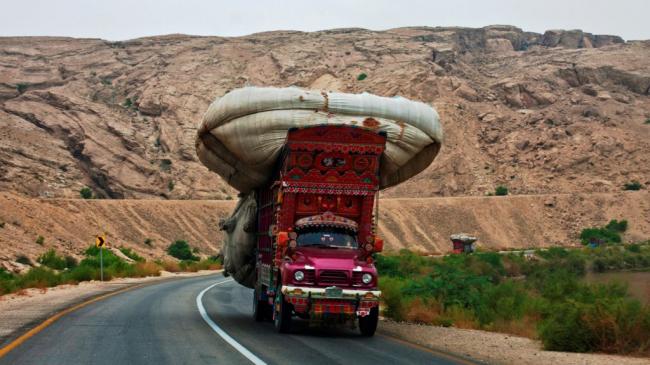
ADB, UK Aid Support Pakistan National Transport policy, master plan
The Government of the United Kingdom, through its Department for International Development (DFID), is funding a $15.4 million project under its Pakistan Economic Corridors Program (PECP) to be administered by the Asian Development Bank (ADB). This is one of the largest technical assistance projects on transport policy supported by DFID and ADB in Asia.
“National transport policy will complement government efforts to improve transport and trade infrastructure. This will also help enhance local and regional trade. Well planned, safe, better maintained, and regionally connected transport infrastructure is the key to unlocking the economic growth potential of Pakistan. The new policy should be gender inclusive and climate smart to meet the future challenges of Pakistan” said Joanna Reid, Head of DFID Pakistan.
At the project inception workshop held in Islamabad, Ms. Reid, Werner E. Liepach, ADB’s Country Director for Pakistan, and Yousaf Naseem Khokhar, Secretary of the Ministry of Planning, Development and Reforms, underscored the importance of an effective transport policy that not only creates more jobs but also spurs economic growth.
“Inefficiencies in the performance of the transport sector costs Pakistan’s economy 4-6% of gross domestic product every year. ADB and other partners have been assisting Pakistan address the transport infrastructure deficit, but such infrastructure investment needs to be backed with the institutional improvement and policy intervention,” said Mr. Liepach.
Pakistan’s transport sector suffers from inadequate and poor infrastructure. A lack of coherent approach to transport network development, fragmented policy planning, and poor condition of road safety for users — with more than 30,000 killed in road accidents annually — are some of the major challenges facing the sector.
This policy will formulate a holistic vision and prioritized action plan to upgrade Pakistan’s transport sector, offering long-term opportunities for all transport modes in Pakistan including railways, roads, ports and shipping, aviation, and logistics services.
Improvement of road safety programs, road asset management systems, scaling up resources for better road design and maintenance, and supporting multimodal transport to facilitate trade within Pakistan and with its neighboring countries, are other key targets of the initiative.
ADB, based in Manila, is dedicated to reducing poverty in Asia and the Pacific through inclusive economic growth, environmentally sustainable growth, and regional integration. Established in 1966, ADB is celebrating 50 years of development partnership in the region. It is owned by 67 members—48 from the region.
Image: ADB website
Support Our Journalism
We cannot do without you.. your contribution supports unbiased journalism
IBNS is not driven by any ism- not wokeism, not racism, not skewed secularism, not hyper right-wing or left liberal ideals, nor by any hardline religious beliefs or hyper nationalism. We want to serve you good old objective news, as they are. We do not judge or preach. We let people decide for themselves. We only try to present factual and well-sourced news.







